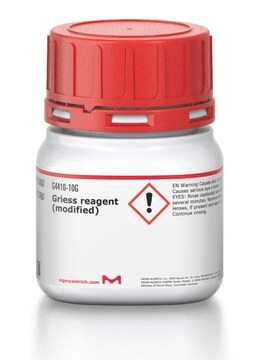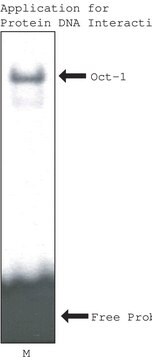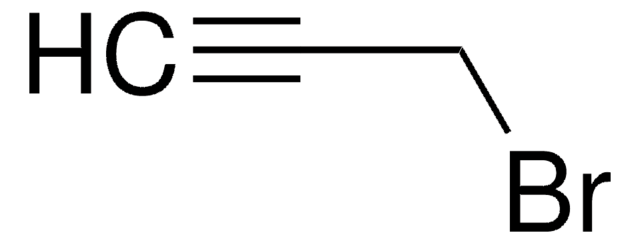CS0010
β-Secretase (BACE1) Activity Detection Kit (Fluorescent)
1 kit sufficient for 250 reactions
Synonym(s):
BACE1 Activity Detection Kit (Fluorescent)
Sign Into View Organizational & Contract Pricing
All Photos(2)
About This Item
UNSPSC Code:
12161503
NACRES:
NA.84
Recommended Products
Quality Level
usage
kit sufficient for 250 reactions
shipped in
wet ice
storage temp.
−20°C
Gene Information
human ... BACE1(23621)
Related Categories
Biochem/physiol Actions
BACE1 is a transmembrane protease responsible for the β site cleavage of the amyloid precursor protein (APP) to produce amyloid β peptide (Aβ). The accumulation of Aβ in the brain is a primary cause for the progression of Alzheimer′s. BACE1 is a target for inhibitor drug discovery.
Suitability
The kit provides all the reagents required for an efficient detection of BACE1 activity. It contains an enzyme to be used for screening for potential BACE1 inhibitors. The assay is based on the fluorescence resonance energy transfer (FRET) method in which the fluorescence signal enhancement is observed after substrate cleavage by BACE1.
Kit Components Only
Product No.
Description
- Fluorescent Assay Buffer 50 mL
- Stop Solution 15 mL
- Substrate (MOCA-SEV-NL-DAEFR-DNP-RR) 500 μL
- Assay Standard 140 μL
- BACE1 (β−Secretase) 300 units 100 μL
Storage Class Code
10 - Combustible liquids
Choose from one of the most recent versions:
Already Own This Product?
Find documentation for the products that you have recently purchased in the Document Library.
Customers Also Viewed
Fluoro-benzimidazole derivatives to cure Alzheimer's disease: In-silico studies, synthesis, structure-activity relationship and in vivo evaluation for β secretase enzyme inhibition.
Sayyad Ali et al.
Bioorganic chemistry, 88, 102936-102936 (2019-05-06)
Lu Zhao et al.
Cells, 8(5) (2019-05-22)
β-site APP-cleaving enzyme 1 (BACE1) initiates amyloid precursor protein (APP) cleavage and β-amyloid (Aβ) production, a critical step in the pathogenesis of Alzheimer's disease (AD). It is thus of considerable interest to investigate how BACE1 activity is regulated. BACE1 has
Lucas J Gutiérrez et al.
Journal of biomolecular structure & dynamics, 37(1), 229-246 (2018-01-06)
We report in this work new substituted aminopyrimidine derivatives acting as inhibitors of the catalytic site of BACE1. These compounds were obtained from a molecular modeling study. The theoretical and experimental study reported here was carried out in several steps:
Piyoosh Sharma et al.
European journal of medicinal chemistry, 167, 510-524 (2019-02-21)
The multitarget-directed strategy offers an effective and promising paradigm to treat the complex neurodegenerative disorder, such as Alzheimer's disease (AD). Herein, a series of N-benzylpiperidine analogs (17-31 and 32-46) were designed and synthesized as multi-functional inhibitors of acetylcholinesterase (AChE) and
Vijay K Nuthakki et al.
Drug development research, 80(5), 655-665 (2019-05-03)
Beta-secreatse (BACE-1) and cholinesterases are clinically validated targets of Alzheimer's disease (AD), for which natural products have provided immense contribution. The multifaceted nature of AD signifies the need of multitargeted agents to tackle this disease. In the search of new
Articles
Alzheimer's disease (AD) is the most common cause of dementia in the elderly and is characterized by gradual loss of cognitive functions.
Our team of scientists has experience in all areas of research including Life Science, Material Science, Chemical Synthesis, Chromatography, Analytical and many others.
Contact Technical Service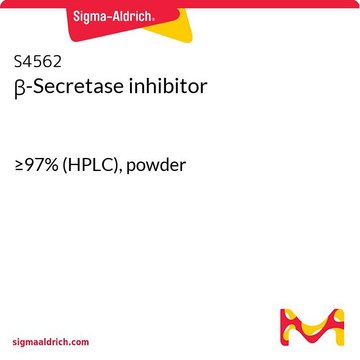

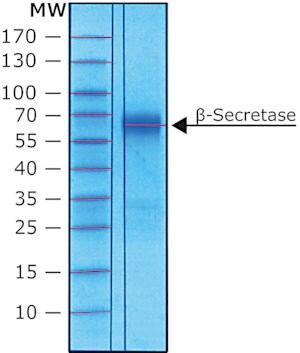

![MCA-[Asn670, Leu671]-Amyloid β/A4 Precursor Protein 770 Fragment 667-676-DNP-Lys-Arg-Arg-NH2 ≥90% (HPLC)](/deepweb/assets/sigmaaldrich/product/images/375/511/f63f11a7-86de-45c4-95a0-7afa616bb265/640/f63f11a7-86de-45c4-95a0-7afa616bb265.jpg)

